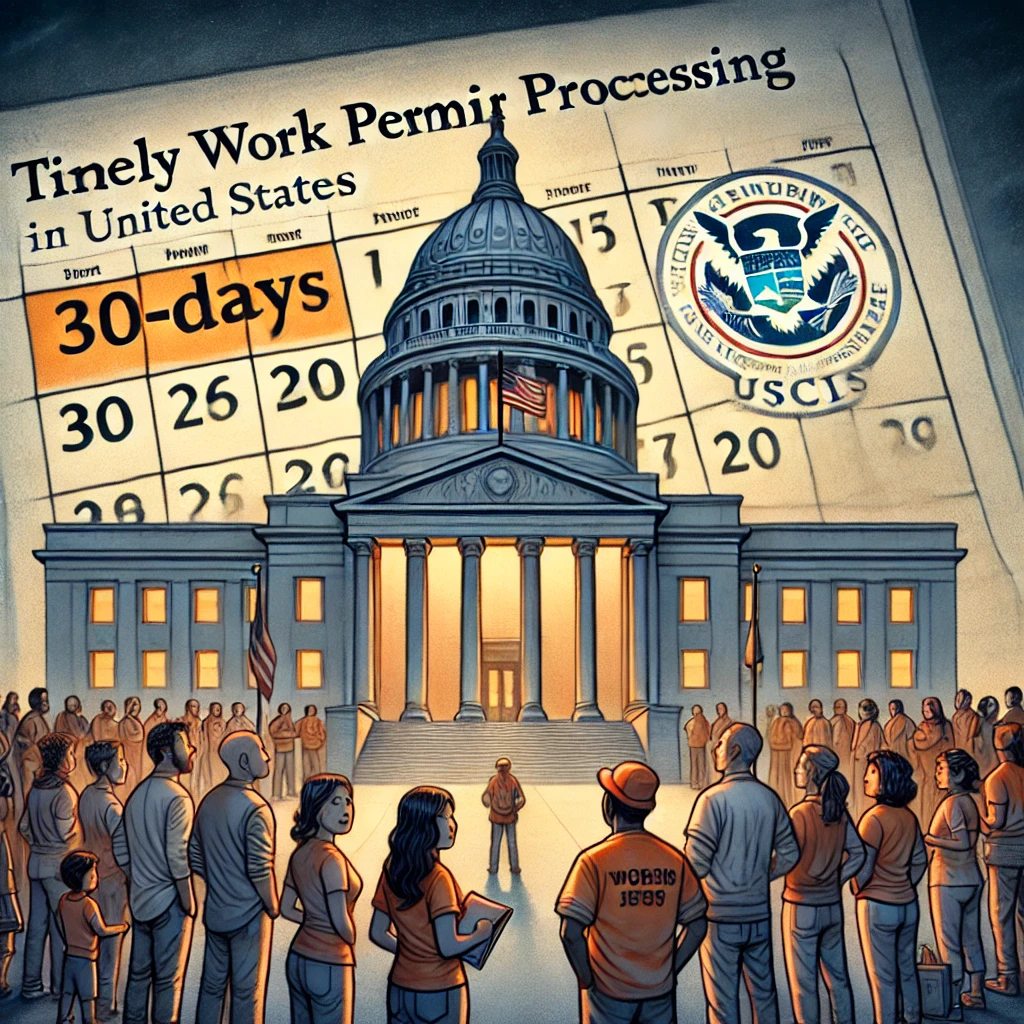
Ensuring Timely Employment Authorization for Asylum Seekers: A Legal Challenge to USCIS Delays
Rosario v. U.S. Citizenship & Immigration Servs., 365 F. Supp. 3d 1156 (W.D. Wash. 2018).
Substance and Outcome of the Case:
This case was about whether the U.S. Citizenship and Immigration Services (USCIS) was obligated to process work permit applications (Employment Authorization Documents, or EADs) for asylum seekers within 30 days, as required by federal regulations. Asylum seekers who had already waited 150 days to apply for a work permit faced additional delays because USCIS often took much longer than 30 days to process these applications. Plaintiffs argued that these delays harmed them, as they could not work and support themselves or their families while waiting.
The court ruled in favor of the asylum seekers, finding that USCIS had a mandatory duty to process EAD applications within the 30-day deadline set by federal regulations. The court ordered USCIS to comply with this deadline and issued an injunction, requiring the agency to process work permits on time. Additionally, the court mandated that USCIS submit regular updates about its compliance with the order.
Understanding the Case and Its Outcome
Background of the Case
- Asylum seekers in the U.S. can apply for a work permit (EAD) after their asylum application has been pending for 150 days.
- Federal regulations require USCIS to process these work permit applications within 30 days of receiving them.
- However, USCIS frequently missed this deadline, leaving asylum seekers unable to work legally.
Legal Challenge
- Plaintiffs (asylum seekers) filed a class action lawsuit, arguing that USCIS’s delays violated the 30-day deadline set by law.
- USCIS argued that it was not always possible to meet this deadline due to limited resources and increasing application volumes.
Court’s Findings
- The court ruled that the 30-day deadline was mandatory, not optional. USCIS was legally obligated to adhere to this timeline, regardless of resource constraints.
- The court rejected USCIS’s argument that the deadline was merely a guideline, emphasizing that the regulation’s purpose was to ensure timely work authorization for asylum seekers.
Outcome
- The court ordered USCIS to process all initial EAD applications within the 30-day deadline.
- USCIS must also provide biannual updates to the court about its compliance with the order.
Elaborated Facts, Analysis, and Conclusion
Facts
- The case was brought by asylum seekers whose work permit applications were significantly delayed beyond the required 30 days.
- Data showed that USCIS failed to meet the 30-day deadline in most cases, with timely processing occurring in only 22% of cases between 2010 and 2017.
Analysis
- The court analyzed the regulatory framework and found that the 30-day deadline was mandatory. The regulation’s clear language and purpose supported the plaintiffs’ claim.
- The court highlighted that these delays caused significant harm to asylum seekers, who could not work legally to support themselves while waiting for their asylum cases to be resolved.
- USCIS’s arguments about resource constraints and practical difficulties were dismissed. The court emphasized that regulations have the force of law and must be followed until they are officially changed.
Conclusion:
The court granted the plaintiffs’ request for an injunction, compelling USCIS to process EAD applications within 30 days as required by the law.
This decision reinforced the rights of asylum seekers to timely adjudication of their work permits and held USCIS accountable for regulatory compliance.
Significance:
This case highlights the importance of timely processing of work permits for vulnerable populations and ensures accountability in government agencies. It underscores how legal systems can address bureaucratic delays that negatively impact human welfare.
Let’s Get Started
Your legal challenges deserve personalized attention and innovative solutions. Contact Oware Justice Advocates PC today for a consultation and take the first step toward resolution and peace of mind.
355 South Teller Street, Suite 204,
Lakewood, CO 80226
(Visits to the office are strictly by appointment only)
303-514-6589

